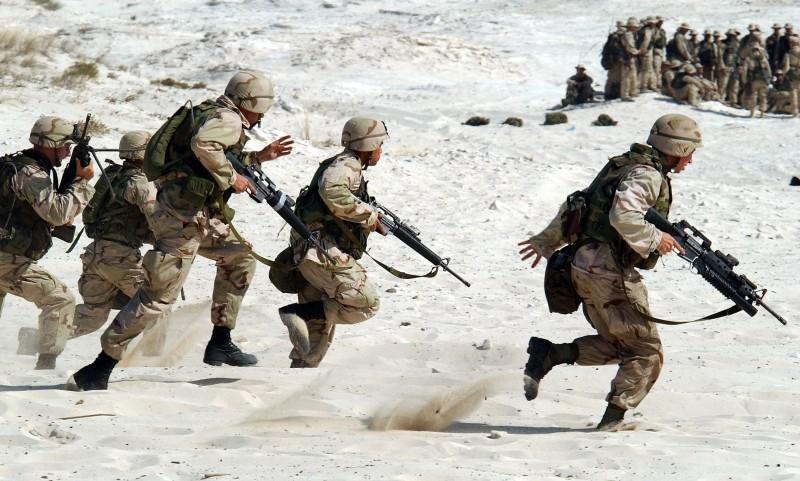Whether you are just about to start on your GCSE English journey next term or you have already completed your first year of the programme, the nerves will no doubt be starting to set in with regards to your final exams!
"How different will the Year 11 exam be? How will I perform under pressure? How can I prepare thoroughly for the English exam?"... these are all questions you might be asking yourself as you head into the summer months. Or not, as the case may be...
Whether you are a 'plan in advance' type of person or you much prefer to leave everything until the last minute before entering panic mode, don't fret! We are here to help you with your poetry revision. Our aim is to help you understand the different types of questions you could be asked and to enhance your poetry reading and analysis skills as much as possible.

GCSE Poetry Revision
An Overview of Your GCSE Exam
When it comes to the poetry section of your English Literature GSCE exam, you will be asked to compare two or more texts from the exam board's poetry archive, often consisting of different genres. Don't be alarmed by this, the fact that the two pieces of writing have some very obvious differences from the offset is an advantage for your poetry review and a concrete topic for you to discuss in your comparative essay. The five criteria that you should keep in mind during the course of your revision and examination and which the examiner will want to see you engage with are: -ideas -attitudes and tone -structure and form -techniques used by the poets If you have paid attention in class and done your own wider reading, then you will probably be able to answer questions about the above criteria in connection with poems learned on your poetry courses. The key is keeping your wits about you when you head into that exam room and to not let your nerves get the better of you! Find popular writing classes online here. 
How To Revise Poetry
How To Revise For Poetry GCSE
As previously mentioned, your exam will see you having to compare two or more different poems in an analytical essay. The idea behind this is that, by thinking about the similarities and differences of multiple poems, you can gain a better understanding and a deeper appreciation of them.
It's also quite fascinating seeing the different manners in which poets from the same movement or from centuries apart approach a similar theme.
Just some of the poets you might encounter on your exam, in no particular order, are: -Matthew Arnold -Emily Dickinson -John Donne -William Wordsworth -Ezra Pound -Walt Whitman -Robert Browning -Robert Frost -Edgar Allan Poe -Lord Byron -William Blake -Sylvia Plath -Gwendolyn Brooks -Elizabeth Barrett Browning -John Keats -Billy Collins -Alfred Lord Tennyson -William Shakespeare As you can see, there is a wide range of poets in this long, non-exhaustive list covering different genders, eras, and levels in society. Further to the criteria mentioned above, it is important to keep a number of other trigger words in mind to help you to come up with your content, i.e. ideas for your comparison. For instance, you should think about: -Theme -Attitude -Form -Structure -Language -Rhythm and rhyme One of the best things you can do, therefore, is to look at numerous poems by the above poets and analyse them in reference to the five criteria. It may be that, by thinking in advance
Writing a comparative essay is no easy feat, so you will be required to plan your essay well and spare a thought for how it will come across to the examiner.
The BCC Bitesize website uses some great imagery of its own to help you layout your poetry essay plan; it suggests you think of your essay as a sandwich, with the two slices of bread being an introduction to each point and a concluding paragraph, with the multiple fillings being each new point you want to make in reference to that argument. Remember, a plain chicken sandwich makes for quite a dry sandwich, so think about packing your sandwich filling out with more satisfying layers if you want to create a sandwich packed with variety and interest. To give you an idea of the types of questions you might be faced with in your final GCSE English Literature exam, you might be presented with two selected poems or with one selected poem and the freedom to choose another of your choice to compare it with. Themes will normally be along the lines of: -love/relationships -power/conflict -time/place -youth/age 
How To Revise For Unseen Poetry
As scary as it sounds, in some foundation and higher tier exams, you may be presented with one or more unseen poems, which means that neither you or your teacher will know in advance which poems could arise. Just like you would compare two poems as part of your revision or coursework, it's really important that you start by carefully reading all of the texts in question and making initial notes about the similarities and differences that strike you, as well as commenting on things related to form, structure, grammar, vocabulary, and punctuation. Remember, you only have so long in your exam so don't worry if you don't cover all of the points you wish to make in a great deal of detail, the key is to select a range of points to discuss and plan your time effectively so that you write an equal amount about each poem.
It is impossible to cover everything in a timed essay environment.
Of course, it is important to look at aspects of poetry analysis such as perspective, mood, structure, and words and devices, but it's equally important to offer your personal response to the poems being explored. For instance, identify things about the poems you like or dislike and back them up. You must be able to justify the points you are making, even if you don't completely agree with them, as simple remarks like "it is a good poem" with no further exploration of this opinion won't get you anywhere. Where possible, try to relate your feelings back to the context (i.e. "This harsh alliteration reminds me of the harsh conditions that the soldiers would have been exposed to during combat"). All of this is only possible, however, if you practice doing this before the exam comes around.
Poetry Revision Tips
Taken from the BBC Bitesize revision pages, here are just a few ideas of questions you might like to think about and ask yourself as you are reading and responding to the poems in front of you. -What are the poems about? -How do the poems make me feel? -Are the poets trying to make me think about a particular issue or give me a message about something? -Are the poems positive or negative overall? In what particular ways? -What kind of mood or atmosphere is created in the poems? How is this done? -Are there any words that stand out as creating a particular effect or feeling? -How are the poems organized? Why might this be? (For example, is this linked to the mood or content?) -What do you think of each of the poems? 
Summarize with AI:















